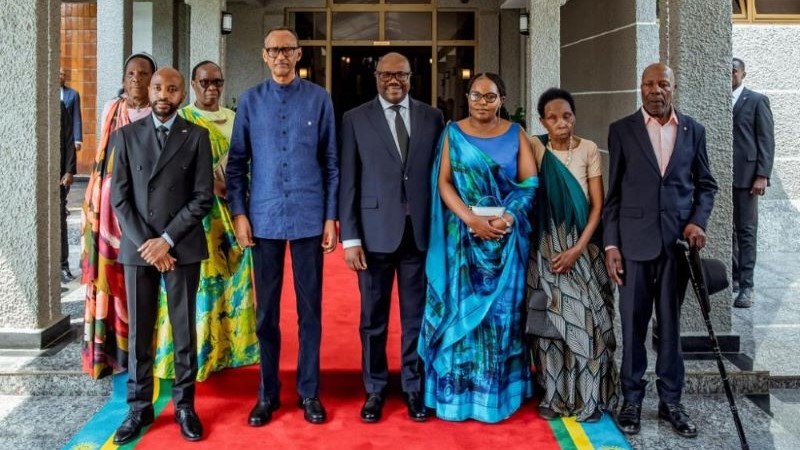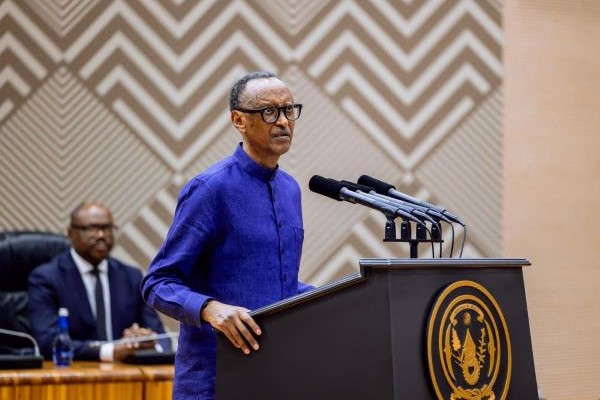President Paul Kagame presided over the swearing in ceremony of the newly appointed Prime Minister, Dr. Justin Nsengiyumva, and several members of the restructured cabinet.
The occasion, however, extended far beyond the formality of assumption of office, it became a platform for Kagame to deliver a powerful, unfiltered message about responsibility and national identity.
The highlighted the urgent need to shed the “saviour mentality” still pervasive among Rwandans and across the African continent.
The President acknowledged the youthful composition of the new government with many of the ministers in their 30s and 40s, a demographic shift he said reflects the natural evolution of leadership.
“When I look at this government, I’m probably the oldest among them. That says something. Shouldn’t the younger generation shape the world they’re inheriting, just as we did in ours?” he asked.
This generational handover, he stressed, must be matched with a transformational shift in mindset and action. The Head of State challenged the newly sworn-in officials, and by extension the broader population, to take full ownership of their roles and responsibilities.
He argued that competence alone is insufficient if not coupled with a deep sense of duty. “There are certain roles people are given because others have seen potential in them. But how you perform, the mindset you carry, and your commitment to something bigger than yourself, that cannot be handed to you. It must come from within.”

The President’s remarks struck at the core of a historical and psychological dilemma that has long plagued many African nations, the dependency on foreign aid and external actors for development.
“Waiting to be saved by people just like us, that’s our first mistake. This culture of waiting for a savior, thinking we will be delivered by people we sit with and call partners, that is the first thing we must abandon,” he warned.
Despite Rwanda’s significant progress, Kagame pointed to deep-rooted systemic issues and an inherited colonial mindset that still linger.
“The kind of disrespect that Rwandans and Africans experience on a daily basis is staggering,” he said. “But we must also look inward. Why don’t we just reject it? What do you lack to raise questions about yourself first, and then about others?”
“External help only matters when you’re already on a path, when you know your destination. They can support you, but they won’t carry you there. In fact, they don’t even want to, nor do they need to. It benefits them more when you stay where you are.”
He criticized the international community’s patronizing posture toward Africa, particularly in areas such as democracy and human rights, where lessons are often imposed without cultural context or historical sensitivity.
“They witnessed our history, yet come and teach us how to live. They tell us to stay poor with dignity, while they talk about human rights. Who among us doesn’t understand human rights?”
According to him, the antidote to this externally enforced narrative is internal reform, starting with how Africans view themselves and their capacity to shape their destiny.
“You must correct the mindset. Even your self-awareness and appreciation. Appreciating yourself and knowing you can do something for yourself. You have the capacity to fight back—not with violence, but with ideas, with values.”
To the younger generation of leaders now stepping into positions of power, Kagame warned against falling into the trap of complaint without action.

